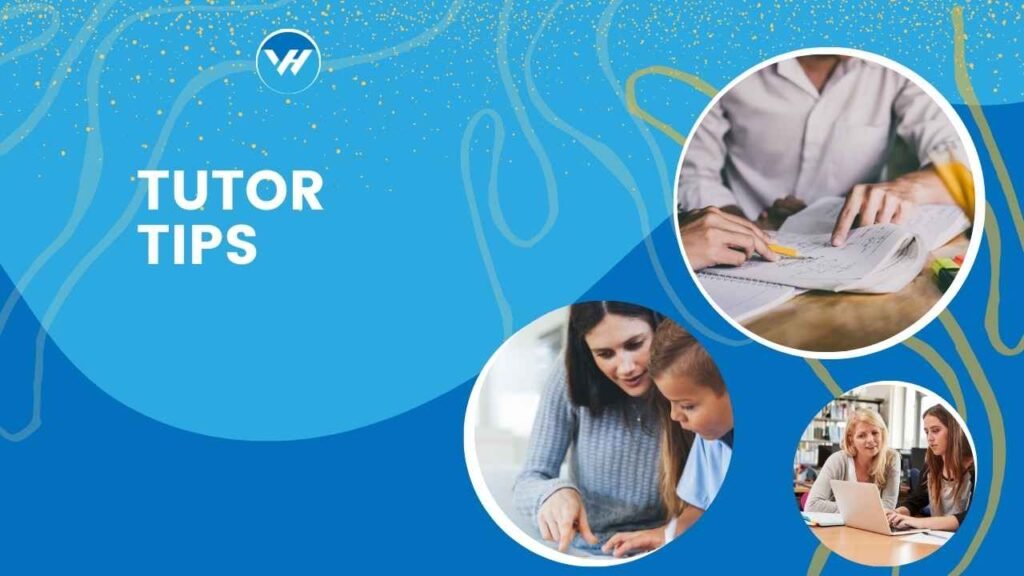Choosing the right tutor can make all the difference in your educational journey. Whether you’re a parent seeking extra help for your child or a student looking for guidance, understanding what makes an effective tutor is key. A great tutor does more than just explain concepts—they inspire, motivate, and adapt to meet individual needs. Let’s explore the essential tips for finding and working with a tutor who will truly make an impact.

Table of Contents
ToggleWhy Tutoring Matters
Personalized Learning
One of the biggest advantages of tutoring is the personalized approach. Unlike a crowded classroom, tutoring allows for one-on-one attention tailored specifically to the student’s needs. This personalized focus helps address specific challenges and reinforce strengths.
Building Confidence and Motivation
Effective tutoring doesn’t just improve grades—it builds confidence and motivation. When students receive the support they need, they’re more likely to engage with the material and feel empowered to tackle new challenges.
Academic Improvement
The ultimate goal of tutoring is academic improvement. A well-chosen tutor can help students grasp difficult concepts, prepare for exams, and develop study habits that lead to better performance.
What to Look for in a Tutor
Patience and Understanding
Importance of Patience
Patience is a crucial quality in any good tutor. Students learn at their own pace, and a patient tutor provides the time and support needed to help them succeed. This patience can prevent frustration and create a positive learning environment.
How Patience Helps in Effective Tutoring
A patient tutor allows students to ask questions and explore concepts without fear of judgment. This approach fosters a supportive atmosphere where students feel comfortable and encouraged to learn.
Examples of Patience in Action
Imagine a student struggling with algebraic equations. A patient tutor would break down the problems into smaller, more manageable parts and offer encouragement, ensuring the student fully understands each step before moving on.
Expertise in Subject Matter
Knowledge of the Subject
A tutor’s expertise in their subject area is non-negotiable. They should possess a deep understanding of the material and be able to explain it in a way that makes sense to the student.
Ability to Explain Complex Concepts Simply
A great tutor doesn’t just know the material—they know how to teach it. This means breaking down complex concepts into simpler terms and using relatable examples to make the subject more accessible.
Proven Track Record and Qualifications
Look for tutors with a proven track record and relevant qualifications. This might include academic degrees, certifications, or experience teaching the subject matter.
Adaptability to Different Learning Styles
Recognizing Various Learning Styles
Students have different learning styles—visual, auditory, kinesthetic, etc. An effective tutor can identify these styles and adapt their teaching methods accordingly.
Tailoring Teaching Methods to Individual Needs
A tutor should adjust their approach based on the student’s learning style. For example, a visual learner might benefit from diagrams and charts, while a kinesthetic learner might prefer hands-on activities.
Flexibility in Approach
Adaptability also means being flexible with teaching strategies. If a particular method isn’t working, a good tutor will try different approaches until they find what works best for the student.
Ability to Engage and Maintain Attention
Techniques for Keeping Students Engaged
Keeping a student’s attention can be challenging, especially with younger learners or less engaging subjects. A tutor should use techniques like interactive activities, real-world applications, and varied teaching methods to keep students interested.
Importance of Interactive Learning
Interactive learning helps students stay engaged and retain information better. This could include discussions, problem-solving sessions, and interactive exercises that make learning more dynamic.
Creative Methods to Make Learning Fun
Incorporating games, multimedia, and creative projects can transform dull subjects into exciting learning experiences. A tutor who can make learning enjoyable will help students develop a love for the subject.
Communication Skills
Active Listening
A tutor needs to listen actively to understand the student’s needs, concerns, and feedback. This involves not just hearing the words but also understanding the context and emotions behind them.
Providing Constructive Feedback
Constructive feedback helps students understand their strengths and areas for improvement. A good tutor offers feedback in a way that is encouraging and actionable.
Building a Positive Rapport
Creating a positive rapport between tutor and student fosters a supportive learning environment. When students feel comfortable and respected, they’re more likely to engage and learn effectively.
Availability and Accessibility
Scheduling Flexibility
Tutoring should fit into the student’s schedule, not the other way around. A tutor with flexible availability can accommodate different time slots, making it easier for students to get the help they need.
Location Options: Online vs. In-Person
Consider whether online or in-person tutoring is more convenient. Online tutoring offers flexibility and accessibility, while in-person sessions might be preferable for hands-on subjects.
Response Time and Communication Channels
Effective communication is key. A tutor should be responsive to messages and inquiries, providing timely updates and feedback.
Using Technology to Enhance Tutoring
Online Tools and Resources
Modern technology offers a wealth of tools and resources to enhance tutoring. This includes educational apps, interactive platforms, and digital resources that can support learning.
Benefits of Virtual Tutoring
Virtual tutoring has become increasingly popular due to its convenience and accessibility. It allows students to connect with tutors from anywhere and access a wide range of resources.
Ensuring Effective Use of Technology
A tutor should be adept at using technology effectively. This means choosing the right tools for the subject and ensuring that they enhance, rather than distract from, the learning experience.
Setting Goals and Tracking Progress
Importance of Setting Clear Objectives
Setting clear goals helps both the tutor and the student stay focused. Goals provide direction and motivation, making it easier to measure progress and success.
Regular Assessment and Feedback
Regular assessments and feedback are essential for tracking progress. A good tutor will provide ongoing evaluations and adjust their approach based on the student’s performance.
Adjusting Strategies Based on Progress
As students progress, their needs may change. A tutor should be prepared to adjust strategies and methods to continue supporting the student effectively.
Building a Strong Tutor-Student Relationship
Trust and Respect
A strong tutor-student relationship is built on trust and respect. When students feel respected and valued, they’re more likely to be engaged and motivated.
Encouraging Open Communication
Encouraging open communication helps address any concerns or issues that arise. A good tutor fosters an environment where students feel comfortable discussing their challenges and successes.
Celebrating Achievements Together
Celebrating achievements, no matter how small, boosts motivation and confidence. A tutor should recognize and celebrate the student’s progress and accomplishments.
Finding the Right Tutor
Platforms to Search for Tutors
Finding the right tutor can be made easier with platforms like Virtual Help. These platforms offer a range of tutors with various specialties, making it easier to find the right match.
Evaluating Tutor Profiles and Reviews
When choosing a tutor, review their profile and feedback from other students. This helps ensure that the tutor’s qualifications and teaching style align with your needs.
The Role of Virtual Help in Tutor Selection
Virtual Help provides a convenient way to find and connect with qualified tutors. With its user-friendly interface and diverse tutor options, it’s an excellent resource for finding the right educational support.
Conclusion
Finding the right tutor involves more than just picking someone with knowledge in a subject. It’s about choosing a person who can connect with the student, adapt to their needs, and make learning engaging. By considering the tips outlined in this article, you can find a tutor who will not only help improve academic performance but also inspire and motivate. Remember, effective tutoring can be a game-changer, leading to greater confidence and success in education.
FAQs
How do I find a tutor that fits my child’s learning style?
Start by assessing your child’s learning style and needs. Use platforms like Virtual Help to find tutors who specialize in your child’s subject and review their profiles for indications of their adaptability and teaching methods.
What qualifications should a tutor have?
Look for tutors with relevant degrees or certifications in their subject area. Experience in teaching and a proven track record of success with students are also important factors.
How can I ensure my child remains engaged during tutoring sessions?
Choose a tutor who uses interactive and creative teaching methods to keep lessons engaging. Discuss your child’s interests with the tutor to incorporate them into the lessons and make learning more enjoyable.
What are the benefits of online tutoring compared to in-person sessions?
Online tutoring offers flexibility, convenience, and access to a wider range of tutors. It allows for learning from the comfort of home and can be scheduled to fit your child’s needs more easily.
How do I track my child’s progress with their tutor?
Set clear goals and regularly review progress with the tutor. Ask for frequent updates and assessments to understand how your child is advancing and whether any adjustments are needed in the tutoring approach.





